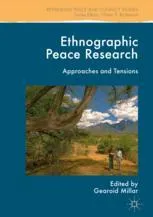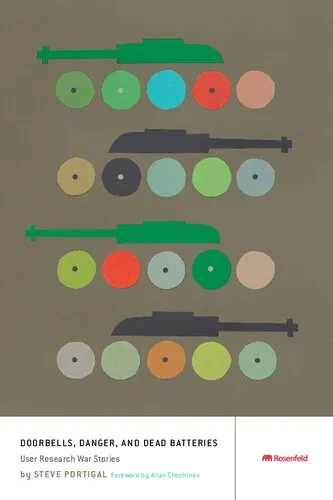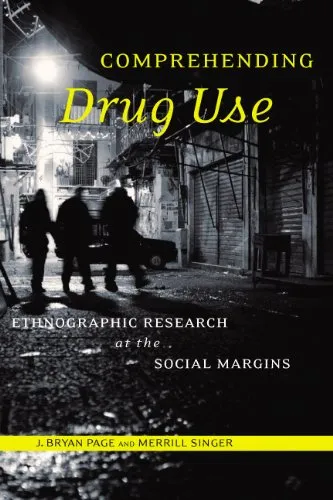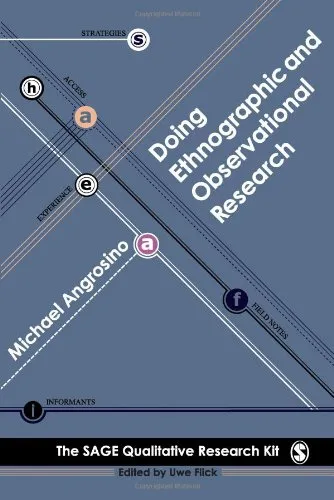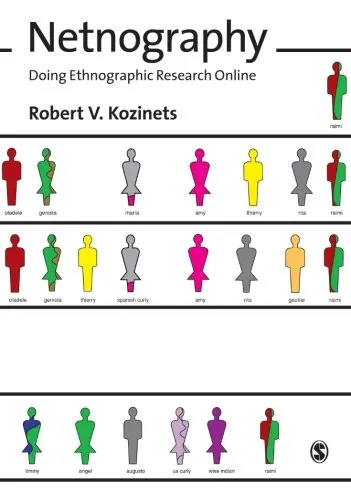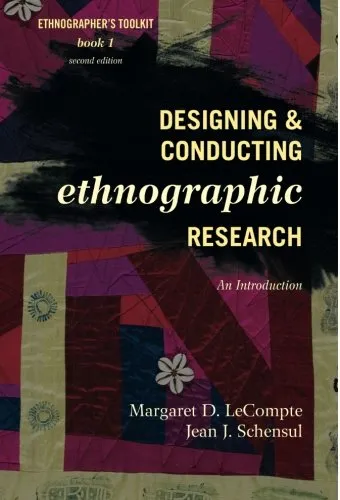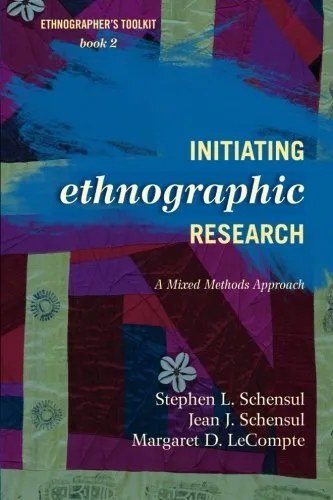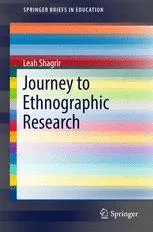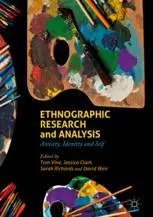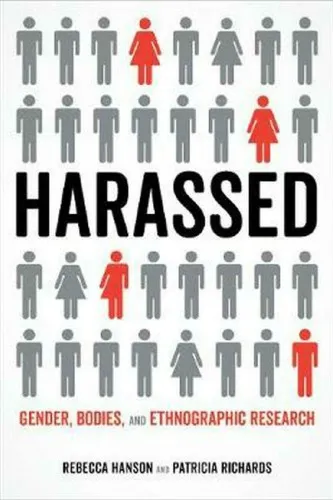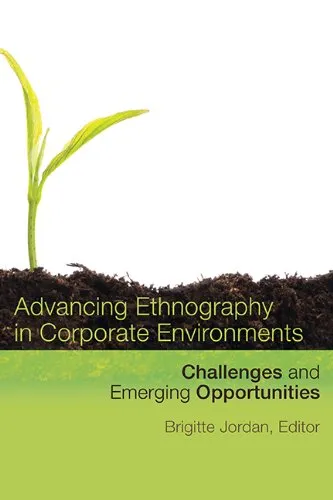Ethnographic Peace Research: Approaches and Tensions
4.7
بر اساس نظر کاربران

شما میتونید سوالاتتون در باره کتاب رو از هوش مصنوعیش بعد از ورود بپرسید
هر دانلود یا پرسش از هوش مصنوعی 2 امتیاز لازم دارد، برای بدست آوردن امتیاز رایگان، به صفحه ی راهنمای امتیازات سر بزنید و یک سری کار ارزشمند انجام بدینکتاب های مرتبط:
مقدمهای بر کتاب 'Ethnographic Peace Research: Approaches and Tensions'
کتاب 'Ethnographic Peace Research: Approaches and Tensions' ویرایش شده توسط جیرود میلر، یک نگاه دقیق و جامع به تحقیقاتی است که به تعاملات ظریف و پیچیده در جوامع متاثر از درگیریها میپردازد. این کتاب به بررسی روشهایی میپردازد که در تحقیقات ethnographic استفاده میشوند تا ساختارهای صلحآمیز و قابلیتهای آنها در مکانهای مختلف مورد تحلیل و کنکاش قرار گیرد.
خلاصۀ کتاب
این کتاب نشاندهنده تلاشهای پیشرفته در زمینه پژوهشهای ethnographic است که به درک فرآیندهای اجتماعی کمک میکند که در پی صلح میان افراد و گروههای مختلف شکل میگیرند. محققان با استفاده از روشهای مختلف ethnographic همکاری میکنند تا زوایای مختلف فرهنگها، هویتها و تجربیات جوامع را نشان دهند و بررسی کنند که چگونه این عناصر میتواند به ایجاد صلح یا استمرار درگیری بپردازد. بررسىهای مختلف این کتاب دربرگيرنده موضوعاتی مانند تعاملات روزمره، فرهنگسازی، و تغییرات اجتماعی است که همه در فرآیندهای صلح و درگیری نقش دارند.
یادگیریهای کلیدی
- استفاده از Ethnography به عنوان ابزاری قدرتمند جهت درک زمینههای فرهنگی و اجتماعی جوامع.
- تشخیص عوامل موثر در پایداری صلح و چگونگی تقابل آنها با عوامل منجر به درگیری.
- فهم پیچیدگیهای ناشی از تنوع فرهنگی و نقش آن در تحکیم صلح یا تشدید درگیریها.
نقلقولهای مشهور از کتاب
"مطالعه ethnographic به ما اجازه میدهد تا به عمق تجربه انسانی نفوذ کنیم، جایی که داستانهای فردی و جمعی پرداخته میشوند."
"صلح نه به عنوان هدفی ایستا، بلکه به عنوان فرایندی پویا تلقی میشود که نیازمند درک و کارکردن مداوم است."
چرا این کتاب مهم است؟
این کتاب درک جدیدی را از نقش عمیق و بعضاً کمرنگشده فرهنگها در شکلدهی به فرآیندهای صلح و درگیری ارائه میدهد. با تمرکز بر ethnographic research، این کتاب نشاندهنده روشهای جدید و نوآورانه تحلیل موضوعات پیچیده است و میتواند محققان را به سمت رویکردهای منحصربهفرد و کارساز در درک و ترویج صلح هدایت کند. مطالعه این اثر برای کسانی که به جنبههای فرهنگی، اجتماعی و انسانی صلح و درگیری علاقهمند هستند، ضروری است.
Welcome to the world of ethnographic inquiry into peace and conflict studies. "Ethnographic Peace Research: Approaches and Tensions," edited by Gearoid Millar, offers a profound and in-depth exploration into the methodologies and dynamics of ethnography within the domain of peace research. This book brings together a range of perspectives and case studies, underlining the complexities and nuances involved in ethnographic fieldwork when applied to studying peace and conflict.
Summary of the Book
Ethnographic Peace Research is an innovative anthology that delves into the practice of ethnography as a method for understanding the intricacies of peace and conflict. The book is articulated through various chapters written by different scholars, each contributing unique insights and analyses based on their fieldwork experiences around the globe. These contributions challenge conventional quantitative and theoretical peace research methods, emphasizing the importance of context, lived experiences, and local narratives.
The book addresses the gap between high-level peace agreements and the everyday realities faced by individuals in conflict zones. Through ethnographic methods such as participant observation, interviews, and immersion, contributors illuminate the lived experiences of communities, offering a holistic understanding of peace that transcends mere ceasefires or political accords. The chapters are interspersed with reflective discussions on methodological challenges, ethical considerations, and the power dynamics inherent in ethnographic research.
Key Takeaways
- Ethnography as a tool for peace research emphasizes the significance of context-specific details and individual narratives.
- Understanding peace requires acknowledging the complex relationships between local actors, their histories, and everyday challenges.
- The book underscores the ethical quandaries and dilemmas faced by researchers in conflict-affected areas.
- A recurring theme is the discrepancy between international peacebuilding efforts and local perspectives of peace and security.
- Reflexivity and self-awareness are critical in ethnographic research to avoid biases and misrepresentations.
Famous Quotes from the Book
"Ethnography is not just a method; it is a commitment to understanding the human condition in its most raw and immediate expressions."
"To grasp what peace means to those who live it, we must listen to the subtleties of their voices, the nuances of their words, and the silences in between."
Why This Book Matters
In today's world, where conflicts are increasingly complex and deeply rooted in cultural, social, and historical contexts, "Ethnographic Peace Research: Approaches and Tensions" offers an essential contribution to peace and conflict studies. The book challenges scholars and practitioners to look beyond traditional frameworks and consider the essential roles that individual and community experiences play in shaping peace initiatives. By advocating for a bottom-up approach, the anthology provides critical insights into how peace is conceptualized, pursued, and maintained in different contexts.
Moreover, this book serves as a pivotal resource for both students and seasoned researchers, equipping them with the methodological tools to conduct fieldwork ethically and effectively in challenging environments. It encourages a scholarly dialogue that is both reflexive and critical, ultimately contributing to more nuanced and effective peacebuilding strategies.
دانلود رایگان مستقیم
شما میتونید سوالاتتون در باره کتاب رو از هوش مصنوعیش بعد از ورود بپرسید
دسترسی به کتابها از طریق پلتفرمهای قانونی و کتابخانههای عمومی نه تنها از حقوق نویسندگان و ناشران حمایت میکند، بلکه به پایداری فرهنگ کتابخوانی نیز کمک میرساند. پیش از دانلود، لحظهای به بررسی این گزینهها فکر کنید.
این کتاب رو در پلتفرم های دیگه ببینید
WorldCat به شما کمک میکنه تا کتاب ها رو در کتابخانه های سراسر دنیا پیدا کنید
امتیازها، نظرات تخصصی و صحبت ها درباره کتاب را در Goodreads ببینید
کتابهای کمیاب یا دست دوم را در AbeBooks پیدا کنید و بخرید
1368
بازدید4.7
امتیاز0
نظر98%
رضایتنظرات:
4.7
بر اساس 0 نظر کاربران
Questions & Answers
Ask questions about this book or help others by answering
No questions yet. Be the first to ask!
